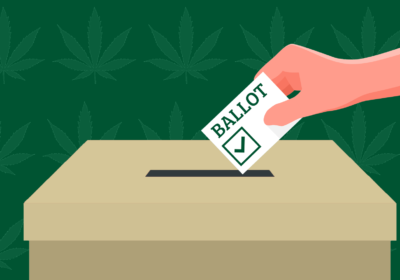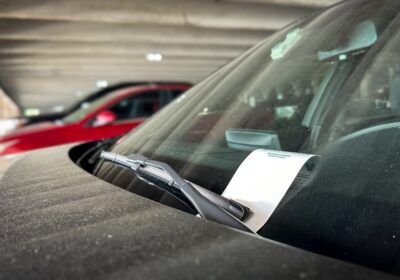Presidential tickets highlight plans to address sexual assault, SG transparency during debate

Candid with an active audience, both presidential and vice presidential tickets outlined their initiatives for transparency and ideas about increasing student success and involvement during Thursday’s Student Government debate.
Jaida Abbas and Jennifer Kelly faced off against Julia Cunningham and Jillian Wilson to express their views on topics ranging from advocacy to student mental health across all three campuses. Each ticket took to the virtual debate stage Thursday at 6 p.m. on Microsoft Teams.
The two-and-a-half-hour event was moderated by Leda Alvim, editor in chief of The Oracle, and Sophie Ojdanic, editor in chief of the St. Pete campus newspaper The Crow’s Nest. The majority of the questions were broken up into five categories, including advocacy, health and wellness, consolidation, finance and student success with several more questions from the audience incorporated at the end of the debate.
To familiarize the audience with each ticket’s initiatives, the moderators asked pointed questions which related to specific parts of their platforms.
One of the issues on the minds of students since last summer, sexual assault on campus, took up a lot of time early in the debate, as the candidates came prepared with statistics and initiatives to show how they would address it.
The Abbas and Kelly ticket was confident they will be able to partner with the nonprofit Crisis Center of Tampa Bay to help student sexual assault victims. Kelly mentioned she already spoke to the nursing director at the center about the cost of rape test kits. Through the potential partnership, she hopes enough kits will be made available for students who need them.
“I spoke with [the nursing director] on multiple occasions about how we can create a partnership that is feasible but also is going to take direct change with it. It’s not just small talk, but it’s really doing something to help the survivors,” Kelly said.
Providing funding for the transportation of sexual assault victims to the Crisis Center by partnering with its TransCare services is also part of the initiative from the Abbas and Kelly ticket. But the candidates do not have a clear plan on how they would implement this service on the campuses yet.
“Right now they do require that survivors … take an Uber to the Crisis Center,” Kelly said. “It’s about 15 minutes away from [the] campus in Tampa Bay, but they do require that so, [we’re] trying to just alleviate the stress that survivors have to go through.”
In response to the issue around sexual assault, the Cunningham and Wilson ticket explained one of their initiatives involves training members of fraternities and sororities as well as the whole student body through programs and a Canvas course, respectively, about how to prevent and report sexual violence on campus.
With this proposal, they hope to reduce the number of sexual assault cases in the community.
Under a “multisystem approach,” they seek to work with several departments at USF, including the Title IX office, to improve the training and modules that Fraternity and Sorority Life (FSL) members and incoming USF students must complete regarding sexual assault.
“That means working with the Title IX office to see what we can do better, working with the IT department to work on making it be more interactive so that we can ensure that students are actually getting those lessons,” Cunningham said.
“Those vital lessons, out of those courses, because obviously the current system we have now on educating the students and educating [FSL] isn’t working much.”
USF’s consolidation was also a hot topic in the debate chat box. At the forefront of this discussion was how the candidates would work with each campus as they implemented their own local initiatives while maintaining each branch’s individuality.
The Cunningham and Wilson ticket emphasized their commitment to communicate with each campus’ local government and said they would have an “open door policy” in which any student could come to them with any concern.
“We believe that by having this open door policy, by traveling to the different campuses and hearing directly from students, we can find a way to make sure that … students on all three campuses, their issues are heard and that we are actively doing something to help them,” Cunningham said.
Without going into detail on how the communication and the open door policy would logistically work, Wilson added they also hope to preserve the personality of each campus through the establishment of this policy.
“We … understand that all three campuses have their own identity and own cultures within their communities on campus, so we don’t want to have to take that away from St. Pete or Sarasota as our smaller two campuses. We don’t want the Tampa campus to overpower their voices,” Wilson said.
Both tickets agreed the three campuses possess unique characteristics, but Abbas believed they should be taking advantage of those differences.
“One commonality of consolidation that I’ve seen over the past year is how oftentimes we focus so heavily on this ‘One USF’ mentality that we avoid and push down the differences between us,” Abbas said. “But if we’re going to be successful as one USF with three geographically located campuses, we have to celebrate the differences between our three campuses and capitalize off of them.”
When the conversation steered toward the mental health of students and each ticket presented how they would address this issue, there were questions from several audience members in the chat about how Student Government (SG) would be able to fulfill many of the projects Cunningham and Wilson were thinking of implementing, like hiring more therapists at the counseling center.
The audience was concerned because SG does not have hiring power, and the university is currently under a hiring freeze due to ongoing budget cuts across all three campuses.
In response to this concern, Cunningham said they would use their access to USF administration and other departments on campus to advocate for the hiring of more counselors.
“We do have access to these other departments on campus,” Cunningham said. “So our job in promoting mental health resources will look like working with these organizations and making them aware of the students’ issues and their concerns revolving around our lack of mental health resources.”
Along with hiring more therapists, Wilson said they wanted students to volunteer at the Counseling Center, such as in the call center, where volunteers would answer calls from students regarding mental distress.
“A lot of students [training to be therapists] have to gain volunteer hours before they can move to graduate school or move on to the next rounds,” Wilson said. “So that’s why we want to invite these trained individuals, or even to train these individuals, [so] that we can help each other and create a USF community where we can all help better each other’s mental health.”
Expanding services at the Counseling Center was also discussed by Abbas and Kelly, who said they would pursue legislative avenues to get funding for other mental health resources. Kelly said recognizing the variety of mental health issues was also a priority for them.
“We have mainly resources for those suffering from anxiety, depression, but there’s still a plethora of other mental health issues that are sometimes not brought to light,” Kelly said.
“We really want to make sure that all of the psychologists that are working with the students understand that there’s a great variety of students. Out of the 55,000 students that are coming, not all of them are going to be plagued with either anxiety or depression, but other mental health issues as well.”
Abbas was also particularly enthusiastic about one initiative of hers which will place student organizations into one of six coalitions based on shared values. Each coalition will have a direct link to SG.
“With the coalitions we will have information directly from the student organization source, but also a body of peers that [SG] can utilize to market and further spread information about our resources but also to refine what we do,” she said.
“We can create new resources and also get rid of resources that are not really helping anybody. This coalition idea is designed specifically to give student organizations a gateway into our organization which we’ve talked a lot about as being something that we currently lack.”
Cunningham and Wilson’s take on increasing student success across the three campuses was inspired by Cunningham’s own experience as a freshman. She said she initially felt connected to USF because of her hall council’s events.
“We’re going to host events that students can join to meet people from other campuses, from what we’ve heard from students is that currently within this pandemic it’s really hard for incoming students to make friends, join organizations and be aware of resources that we offer on campus,” Cunningham said.
“So what we’re going to do is work with different hall councils on the three different campuses to create fun events and activities to help engage students and promote school spirit.”
At the end of the debate, each ticket took 90 seconds to make their closing remarks which served to re-emphasize the points of their platforms they were most passionate about. Communication was the main focus of Cunningham and Wilson’s closing.
“Communication is the foundation of our campaign, and upon this foundation we will build our initiatives,” she said. “We want to be at the service of the student body and advocate for our fellow Bulls.
“This campaign is not about us, it’s about bettering our community together and as our campaign slogan says, ‘Let’s be green together and gold forever.’”
Abbas and Kelly’s closing statement emphasized the importance of students to do their due diligence and continue to research each ticket to decide which pair would be best suited to represent them.
“We know that this is a big undertaking in a system that is only a year old, but if the last year has taught us anything it is how resilient we are, and that is a testament to how we will serve you,” Abbas said.






